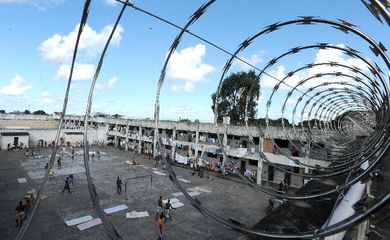Brazil reports it has implemented UN human rights recommendations


Social programs including Bolsa Família and Minha Casa Minha Vida were also credited with advancing human rights as they provide conditional cash transfers and finance affordable homes to low income families.

Virtually all of the 169 recommendations made to Brazil by the UN Human Rights Council almost five years ago have been or are in the process of being implemented.
Brazil's Special Secretariat for Human Rights (SEDH) released a 66-page report Monday (March 6) to be submitted to the Council in May, on the occasion of the third cycle of the Universal Periodic Review. All UN members are required to submit their reports for periodic review, and the UN monitors the human rights situation in each country.
The report brings together information on initiatives and public policies implemented in recent years to advance and protect civil, political, economic, social, and cultural rights covered by Brazilian laws and by international treaties ratified by Brazil.
A stronger council
Among the advances in human rights cited by the government was the replacement of the former Human Rights Protection Council (CDDPH) by the current National Council for Human Rights (CNDH) in 2014.
To illustrate the role of the CNDH, the report mentioned council member visits to the Amazon region where the Belo Monte dam was built, which led to recommendations to public agencies to mitigate the impact of the project on the population and the environment.
Similarly, after a tailings dam collapsed in Mariana, Minas Gerais, the council members also traveled to the Doce river basin region with the purpose of ensuring Samarco, the mining company responsible for the dam, take remedial action.
Extreme poverty
In its report, the SEDH cited poverty reduction and social equality policies as an example of “achievements in promoting and protecting human rights in Brazil”, noting about 36 million Brazilians were lifted out of extreme poverty between 2004 and 2014.
Social programs including Bolsa Família, which benefits 13.57 million families, and Minha Casa Minha Vida were also credited with advancing human rights as they provide conditional cash transfers and finance affordable homes to low income families.
Challenges persist
In spite of the developments and ongoing efforts cited in the report, the Special Secretariat for Human Rights admits that “there are still challenges to the protection of human rights defenders in Brazil, especially of communications professionals, rural leaders, indigenous peoples, quilombolas and environmentalists.”
During the drafting of the document, the Human Rights Defenders' Protection Program (PPDDH), for example, had 349 cases and 500 pending complaints of coercion or threats to the integrity of people engaged with human rights advocacy.
Most cases are related to land rights (114), indigenous peoples (65), maroon communities (quilombolas) (60) and the environment (35). According to the SEDH, “procedures of all protection programmes in force in Brazil demand improvements.”

Samarco mining disaster in Mariana, the most severe social-environmental catastrophe in the country's history
Improved report
For the non-governmental human rights organization Conectas, the latest report has improved on the first release from October 2016. Human rights organizations criticized the first draft as too shallow and for failing to address important issues including police repression and poor investment. With the controversy, the government eventually extended the deadline to accept new contributions.
“We've found that, in many respects, the redraft has helped narrow the discrepancies between what is written and what really happens, which shows the power of civil society and its ability to point out failures and demand improvements in institutional processes,” Conectas's Foreign Policy Coordinator Camila Asano said in a statement. But while recognizing the language and reporting methods have improved between the two versions, she remains critical of the content.
“We're a long way from appropriately responding to the country's problems in this area. This becomes very clear when you see that Samarco mining disaster in Mariana, the most severe social-environmental catastrophe in the country's history, was only briefly, formally mentioned,” she went on, pointing out the incident had actually been completely left out of the first draft.
It happened in November 2015, leaving 19 people dead. Rural districts were engulfed in the sludge, and a large portion of the Doce river basin was exposed to pollution from the tailings.
Recommendation rejected
The only recommendation turned down by Brazilian authorities came from Denmark, who called for the extinction of military police, suggesting it be joined with civil police, and all funding for its services be made conditional upon the implementation of steps to reduce extrajudicial killings by police officers.
Brazil contended that the coexistence of the two police systems with distinct roles and forms of organization was in the Constitution. Moreover, the report said the country was taking steps to control how public security forces operate through the creation of ombudmanships and internal affairs offices and ongoing training.
The report can be found here.
Translated by Mayra Borges
Fonte: Brazil reports it has implemented UN human rights recommendations


